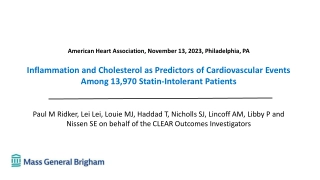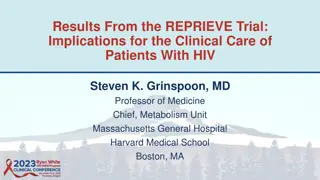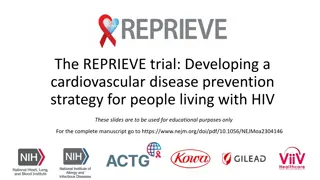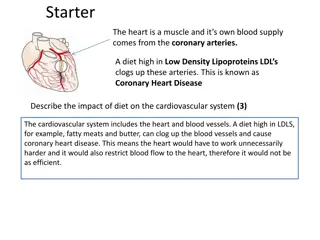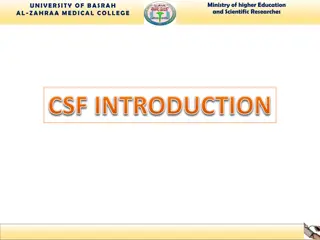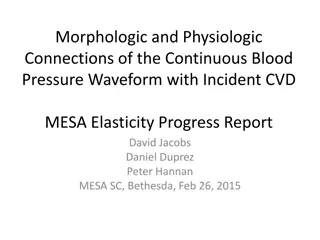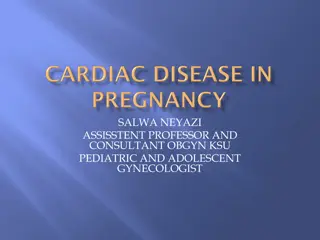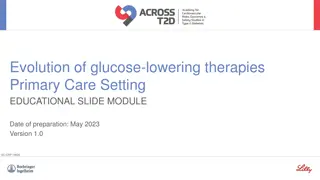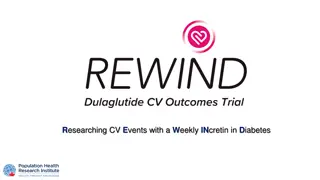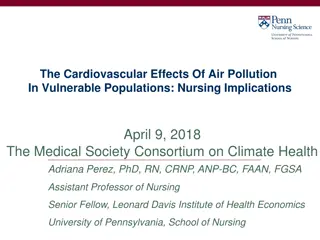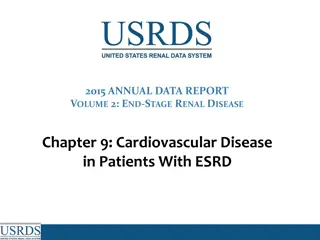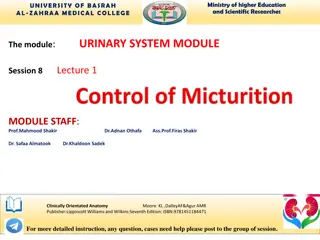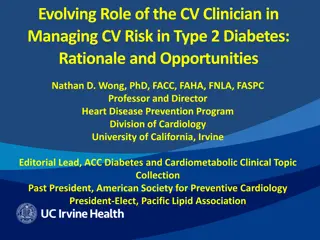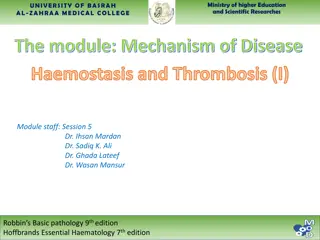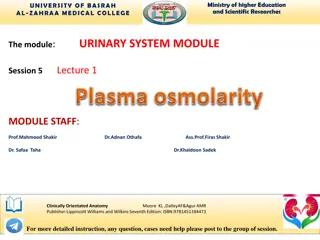Cardiovascular Module at University of Basrah Al-Zahraa College of Medicine
The academic year 2020-2021, 2nd-year students delve into the Cardiovascular Module at the University of Basrah Al-Zahraa College of Medicine. The module covers topics such as heart function, pacemaker activity, heart rate, diastole, and ventricular filling. Students engage with questions on heart physiology, pacemaker function, and the impact of various factors on heart performance. The module staff guide students through theoretical knowledge and practical applications for a comprehensive understanding of cardiovascular science.
Download Presentation

Please find below an Image/Link to download the presentation.
The content on the website is provided AS IS for your information and personal use only. It may not be sold, licensed, or shared on other websites without obtaining consent from the author.If you encounter any issues during the download, it is possible that the publisher has removed the file from their server.
You are allowed to download the files provided on this website for personal or commercial use, subject to the condition that they are used lawfully. All files are the property of their respective owners.
The content on the website is provided AS IS for your information and personal use only. It may not be sold, licensed, or shared on other websites without obtaining consent from the author.
E N D
Presentation Transcript
Ministry of higher Education and Scientific Researches UNIVERSITY OF BASRAH AL-ZAHRAA COLLEGE OF MEDICINE Academic year 2020-2021 2nd year S-3 Cardiovascular Module SGS 4 Date: 30/12/2020 Module staff: Dr Firas Rashid (Module leader) Dr Ansam Munadhel Dr Rehab A. Jaafer Dr Jawad Ramadhan Dr Nawal Mustafa Dr. Nada Hashim Dr Miami Kadhum Dr Khalid Ahmed Dr Nehaya Al-Aubody Dr Amer Qasim Dr Hadeel S. Al AliDr Raghda Shaabeen Dr Hussain Kata Dr Ahmed Hakim
Ministry of higher Education and Scientific Researches UNIVERSITY OF BASRAH AL-ZAHRAA COLLEGE OF MEDICINE
Ministry of higher Education and Scientific Researches UNIVERSITY OF BASRAH AL-ZAHRAA COLLEGE OF MEDICINE The heart as apump 1.What is the average pressure in the right atrium? 2.How many action potentials are generated by the cardiac pacemaker at each heartbeat? 3.How many action potentials are generated by the cardiac pacemaker at each heartbeat? 4.What is a typical resting heart rate? How much blood is ejected from the left ventricle per beat at rest?
Ministry of higher Education and Scientific Researches UNIVERSITY OF BASRAH AL-ZAHRAA COLLEGE OF MEDICINE 8. What will happen to the beating of the heart if the sino-atrial node is damaged? 9. Given the heart has more than one pacemaker, why don't different pacemakers compete to drive the heartbeat in the normal heart? 10. If nerves are to change heart rate where in the heart must they act? 11. If the heart rate is 60 bpm, what is the approximate duration of diastole?
Ministry of higher Education and Scientific Researches UNIVERSITY OF BASRAH AL-ZAHRAA COLLEGE OF MEDICINE 14. Draw a graph (volume against time) to show the rate of ventricular filling in diastole 15. What proportion of the ventricular filling occurs during the first 100 ms of diastole? 16. Why doesn't the ventricle go on filling at the same rate throughout diastole? 17. What will happen if the venous pressure supplying the atrium rises?
Ministry of higher Education and Scientific Researches UNIVERSITY OF BASRAH AL-ZAHRAA COLLEGE OF MEDICINE 20. What happens to intraventricular volume just after the A/V valves close? 21. What will happen if the valve becomes incompetent (leaks)? 22. Why does the ventricle not empty completely into the arteries during systole? 23. What will happen if the heart muscle contracts harder?
Ministry of higher Education and Scientific Researches UNIVERSITY OF BASRAH AL-ZAHRAA COLLEGE OF MEDICINE 24. Why doesn't the aortic valve close as soon as the heart muscle begins to relax? 26. Draw the normal profile of pressure changes in the jugular vein during the cardiac cycle and label the a, c and v components. What produces these components?
Ministry of higher Education and Scientific Researches UNIVERSITY OF BASRAH AL-ZAHRAA COLLEGE OF MEDICINE Autonomic nervous system Q4-1 If you gave an individual an injection of adrenaline what would happen? Q4-2 What does an individual with a high circulating level of adrenaline look like to an outside observer? Q4-3 Some individuals react to bee sting or nettle sting with a massive release of chemical mediators tending to dilate blood vessels and constrict the airways of the lung. What substance would you need to inject into some one suffering this 'anaphylaxis' and why?
Ministry of higher Education and Scientific Researches UNIVERSITY OF BASRAH AL-ZAHRAA COLLEGE OF MEDICINE Q4-4 List the probable physiological effects of giving an individual a drug which antagonizes the action of noradrenaline at -adrenoreceptors Q4-5 A patient with an overactive thyroid gland has an increased sympathetic drive to the heart. How will the patient s heart rate and cardiac output differ from normal?
Ministry of higher Education and Scientific Researches UNIVERSITY OF BASRAH AL-ZAHRAA COLLEGE OF MEDICINE Q4-6 What will be the physiological effects of giving the patient above a drug which antagonizes the action of adrenaline and noradrenaline at b-adrenoreceptors Q4-7 Why does your mouth go dry when you are frightened?
Ministry of higher Education and Scientific Researches UNIVERSITY OF BASRAH AL-ZAHRAA COLLEGE OF MEDICINE Q4-8 Acetylcholine is removed from synapses by an enzyme - acetylcholinesterase. If this enzyme is antagonized or inactivated, then excess acetylcholine will accumulate, particularly at parasympathetic post-ganglionic neuro effector junctions. List the physiological effects of a poison which inactivates acetylcholinesterase (such as a nerve gas or insecticide).
Ministry of higher Education and Scientific Researches UNIVERSITY OF BASRAH AL-ZAHRAA COLLEGE OF MEDICINE Q4-9 What will an individual poisoned in this way look like? Q4-10 Which of the physiological changes above are most life threatening and what would you have to do to keep them alive? Q4-11 In principle, what sort of drug would you use to limit the autonomic effects of poisoning with an acetylcholinesterase inhibitor?
Ministry of higher Education and Scientific Researches UNIVERSITY OF BASRAH AL-ZAHRAA COLLEGE OF MEDICINE


